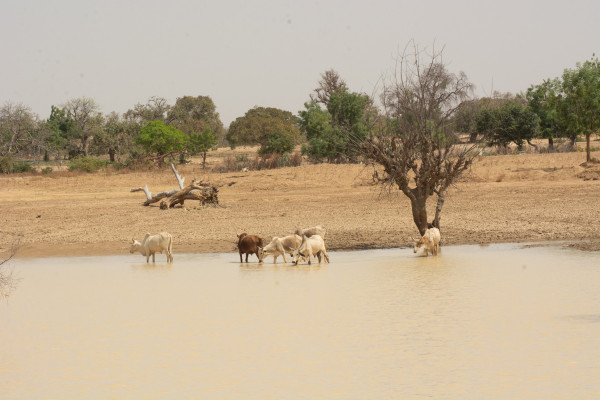Improving climate governance in West Africa: Three calls for inclusive climate action in Burkina Faso, Côte d’Ivoire, and Senegal

Climate change is a growing threat across Africa, with West Africa feeling its effects especially intensely. According to the ND-GAIN index, Burkina Faso (162nd out of 182), Senegal (144th), and Côte d’Ivoire (134th) rank among the most vulnerable countries. They face a dangerous mix of low capacity to adapt and high exposure to climate hazards.
This vulnerability shows up in more extreme weather, worsening food insecurity, and growing precarity—particularly harming women and young people.
To tackle this urgent challenge, the Union of Economic and Social Councils and Similar Institutions of Africa (UCESA), supported by the African Development Bank, has developed three national advocacy papers. These papers promote participatory climate governance that reflects citizens’ real needs. They also aim to strengthen the role of Economic and Social Councils in shaping national climate policies.
“These advocacy plans put citizens back at the centre of climate action,” said Arona Soumare, Principal Climate Change and Green Growth Officer at the African Development Bank. “By giving them full backing, the African Development Bank is reiterating its commitment to inclusive, equitable climate governance rooted in local realities. These initiatives lay the foundations for sustainable and resilient development in Africa.”
According to Abdelkader Amara, current head of UCESA and President of the Economic, Social and Environmental Council (CESE) of Morocco, “UCESA is aware of these challenges and consequently intends to promote and support actions taken by African Economic and Social Councils and similar institutions that help to integrate sustainability and resilience into the frameworks for defining, implementing, and evaluating relevant institutional and policy mechanisms.”
Burkina Faso:
Building resilience in a Sahelian setting
Located in the middle of the Sahel belt, Burkina Faso is one of the countries that is most vulnerable to climate change. This fragility is exacerbated by a limited ability to adapt, which is particularly pronounced among women and young people. The advocacy effort developed by the Economic and Social Council of Burkina Faso, aided by technical support from UCESA, reflects citizens’ perceptions of the real effects of climate change. It proposes responses rooted in local realities, with a view to steering public policies towards a more inclusive, participatory and community resilience-oriented approach.
Côte d’Ivoire:
Towards citizen-centred climate governance
Côte d’Ivoire lies in a region highly vulnerable to climate shocks. This vulnerability is compounded by the limited involvement of women, especially in rural areas, and the still marginal role of civil society. The national advocacy paper, developed through extensive consultation, captures citizens’ expectations and offers clear recommendations for more equitable climate governance. It underscores the importance of fully including people’s voices in decision-making processes—an essential element for effective climate action.
Senegal:
Citizen participation and climate resilience
Senegal, a country in the Sahel-Sudan region, is already bearing the brunt of climate change. The national advocacy campaign draws on a citizen perception survey to inform a participatory discussion on future policy directions. Led by Senegal’s Economic, Social and Environmental Council, in partnership with UCESA and the African Development Bank, the resulting document calls for a unified effort from civil society, researchers, NGOs, and policymakers to create climate strategies that are inclusive, locally grounded, and capable of sustainably strengthening national resilience.
A regional dynamic
These three advocacy papers are part of a regional dynamic propelled by UCESA, with the support of the African Development Bank. They demonstrate a shared commitment to rooting climate action in citizen participation, stakeholder synergy, and regional solidarity. Through this initiative, the Economic and Social Councils are re-asserting their role as a strategic interface between civil society and public authorities in responding to the continent’s climate challenges.
Distributed by APO Group on behalf of African Development Bank Group (AfDB).



